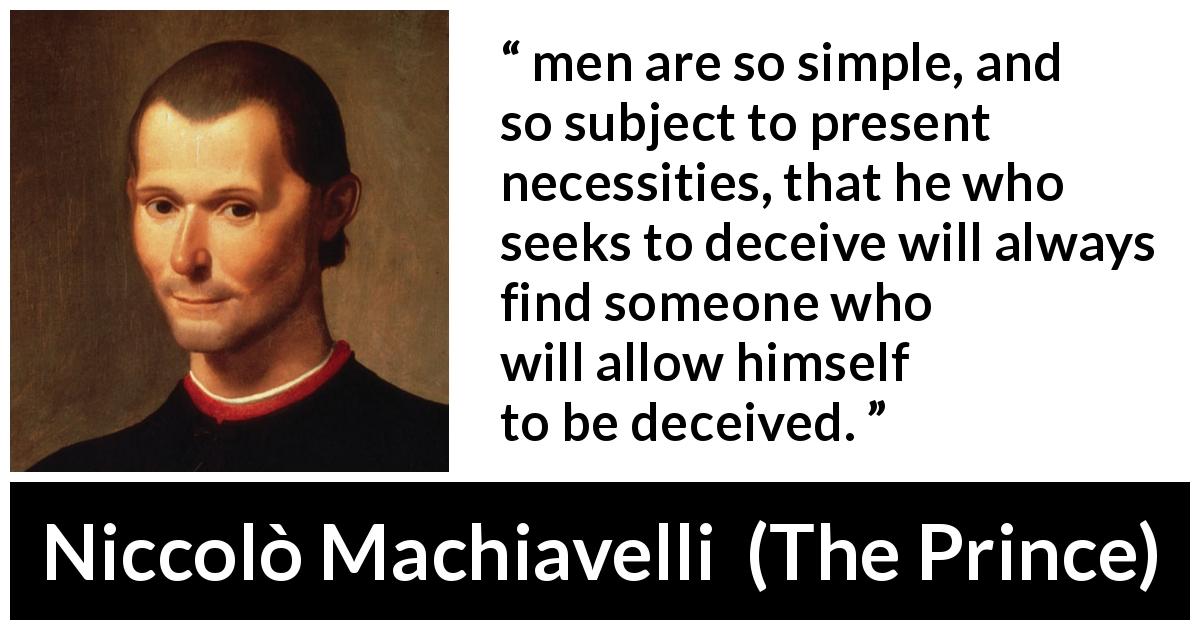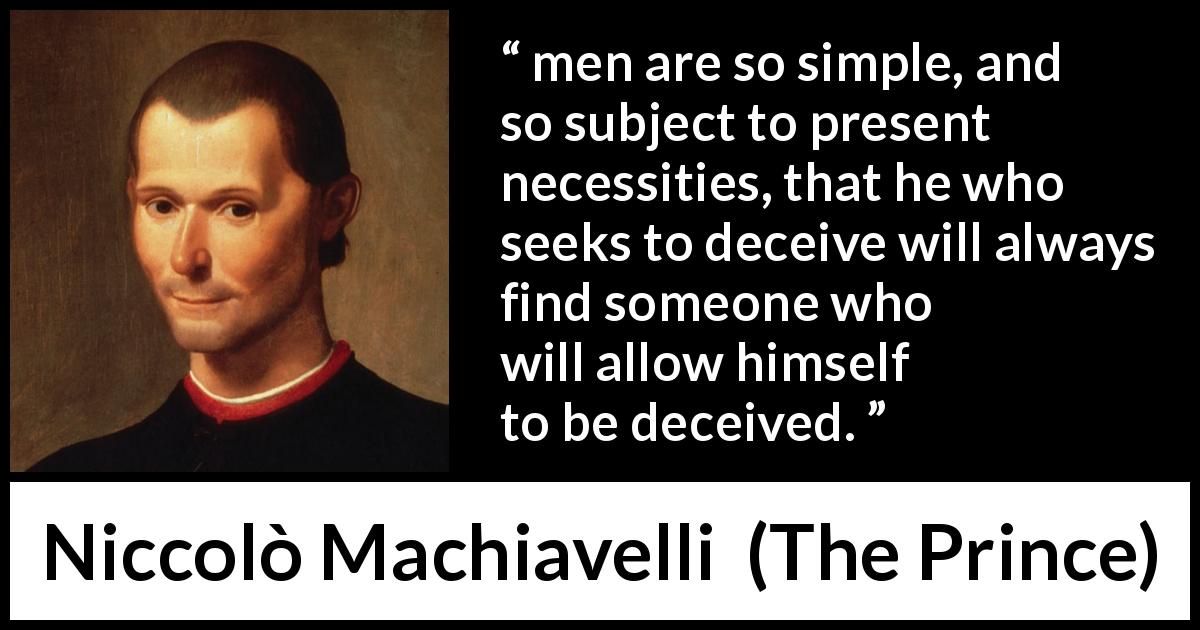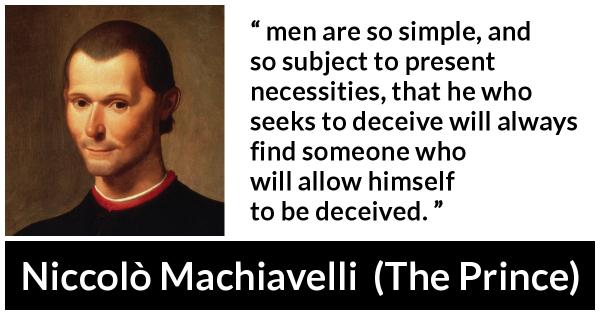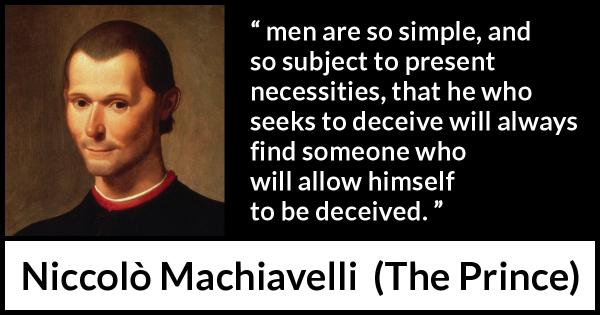“ men are so simple, and so subject to present necessities, that he who seeks to deceive will always find someone who will allow himself to be deceived. ”
Niccolò Machiavelli, The Prince (1532). copy citation
| Author | Niccolò Machiavelli |
|---|---|
| Source | The Prince |
| Topic | necessity deception |
| Date | 1532 |
| Language | English |
| Reference | |
| Note | Translated by W. K. Marriott |
| Weblink | http://www.gutenberg.org/files/1232/1232-h/1232-h.htm |
Context
“Mr Burd points out that this passage is imitated directly from Cicero's "De Officiis": "Nam cum sint duo genera decertandi, unum per disceptationem, alterum per vim; cumque illud proprium sit hominis, hoc beluarum; confugiendum est ad posterius, si uti non licet superiore."
But it is necessary to know well how to disguise this characteristic, and to be a great pretender and dissembler; and men are so simple, and so subject to present necessities, that he who seeks to deceive will always find someone who will allow himself to be deceived. One recent example I cannot pass over in silence. Alexander the Sixth did nothing else but deceive men, nor ever thought of doing otherwise, and he always found victims; for there never was a man who had greater power in asserting, or who with greater oaths would affirm a thing, yet would observe it less; nevertheless his deceits always succeeded according to his wishes,(*) because he well understood this side of mankind.” source
But it is necessary to know well how to disguise this characteristic, and to be a great pretender and dissembler; and men are so simple, and so subject to present necessities, that he who seeks to deceive will always find someone who will allow himself to be deceived. One recent example I cannot pass over in silence. Alexander the Sixth did nothing else but deceive men, nor ever thought of doing otherwise, and he always found victims; for there never was a man who had greater power in asserting, or who with greater oaths would affirm a thing, yet would observe it less; nevertheless his deceits always succeeded according to his wishes,(*) because he well understood this side of mankind.” source























